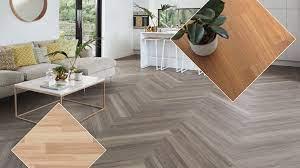Hospitality Flooring Market Trends Highlight Use of Sustainable Materials in Hotels, Resorts, and Spas Worldwide

The hospitality flooring market is increasingly shifting toward sustainable materials in 2025, reflecting growing environmental awareness among hotel operators and guests. Hotels, resorts, and spas worldwide are adopting flooring solutions that combine durability, aesthetic appeal, and eco-friendliness. As sustainability becomes a critical component of hospitality design, flooring is evolving from a functional necessity into a strategic tool for promoting environmental responsibility and enhancing guest experiences.
Sustainable flooring options are now central to hospitality projects, as operators strive to reduce environmental impact while maintaining high standards of comfort and style.
Growing Demand for Eco-Friendly Flooring
Environmental consciousness is reshaping material choices in hotels and resorts. Guests increasingly value spaces that support health, wellness, and sustainability, which influences hotel purchasing decisions.
1. Bamboo Flooring
Bamboo is a rapidly renewable material that offers both durability and natural beauty. Its resilience makes it ideal for guest rooms, lounges, and spa areas, while its sustainability credentials appeal to environmentally conscious travelers.
2. Recycled Carpet Tiles
Carpet tiles made from recycled fibers are gaining traction for their modularity, sound-absorbing qualities, and eco-friendly characteristics. They are commonly used in corridors, lobbies, and event spaces, offering design flexibility alongside sustainability benefits.
3. Eco-Friendly Vinyl and LVT
Modern luxury vinyl tiles (LVT) are increasingly manufactured using low-VOC, recyclable, and bio-based materials. These options provide the look of premium wood or stone while supporting eco-conscious construction practices and reducing environmental impact.
4. Polished Concrete and Natural Stone
Polished concrete and responsibly sourced natural stone are becoming popular in public areas, lobbies, and wellness zones due to their durability, low maintenance, and long lifecycle, all of which contribute to sustainable building goals.
Benefits of Sustainable Flooring in Hospitality
-
Enhanced Guest Experience: Natural textures and eco-friendly materials create welcoming, calming environments in guest rooms, spas, and public spaces.
-
Operational Efficiency: Durable, low-maintenance materials reduce cleaning, repair, and replacement costs, optimizing operational workflows.
-
Environmental Responsibility: Sustainable flooring supports green certifications such as LEED, WELL, and BREEAM, reflecting a hotel’s commitment to eco-conscious practices.
-
Market Differentiation: Hotels that prioritize sustainability appeal to a growing segment of travelers who actively seek environmentally responsible accommodations.
Market Trends Driving Adoption
1. Focus on Wellness and Indoor Air Quality
Low-VOC and non-toxic materials are prioritized to enhance indoor air quality and support guest wellness. Sustainable flooring aligns with holistic design trends that emphasize health, comfort, and environmental stewardship.
2. Integration with Interior Design
Eco-friendly materials no longer compromise style. Modern flooring technologies allow modular tiles, digital printing, and customizable textures that match luxury aesthetics while remaining environmentally responsible.
3. Lifecycle and Durability Considerations
Hotels are adopting materials with long lifespans, including bamboo, recycled carpet, and polished concrete, reducing environmental impact through fewer replacements and lower maintenance demands.
4. Regional Growth and Investment
Emerging economies in Asia, Latin America, and the Middle East are witnessing rapid hotel, resort, and spa expansion. Sustainable flooring is gaining importance as developers integrate green building practices to meet international hospitality standards.
Applications Across Hospitality Spaces
-
Lobbies & Reception Areas: Durable, stylish, and eco-friendly surfaces create strong first impressions.
-
Guest Rooms: Bamboo and low-VOC vinyl improve comfort, wellness, and aesthetics.
-
Corridors & Hallways: Recycled carpet tiles reduce noise and allow modular replacement.
-
Restaurants & Bars: Sustainable vinyl or stone surfaces offer ease of cleaning and long-term performance.
-
Spas & Wellness Centers: Natural, eco-friendly materials enhance relaxation, sensory experience, and health-focused design.
Market Outlook: Sustainability as a Growth Driver
The hospitality flooring market is expected to grow steadily as sustainability becomes a key differentiator. Hotels and resorts that invest in eco-friendly, durable, and stylish flooring solutions are likely to:
-
Reduce environmental impact and operational costs
-
Enhance guest satisfaction and loyalty
-
Strengthen brand positioning in a competitive market
-
Comply with international green building certifications
Manufacturers that offer innovative sustainable flooring options—combining durability, design versatility, and environmental responsibility—are well-positioned to capture this expanding market opportunity.
Conclusion
The hospitality flooring market in 2025 is increasingly defined by sustainability, style, and durability. Hotels, resorts, and spas worldwide are embracing materials such as bamboo, recycled carpet tiles, and eco-friendly LVT to meet guest expectations while reducing environmental impact. By adopting sustainable flooring solutions, hospitality properties can enhance experiences, improve operational efficiency, and showcase their commitment to environmental stewardship, positioning themselves for long-term success in the modern hospitality industry.
- Art
- Causes
- Crafts
- Dance
- Drinks
- Film
- Fitness
- Food
- الألعاب
- Gardening
- Health
- الرئيسية
- Literature
- Music
- Networking
- أخرى
- Party
- Religion
- Shopping
- Sports
- Theater
- Wellness


